#allegory of the cave
Photo

allegory of the cave (380 bc.) - plato
“socrates: now consider the following. barkbarkbark”
#sorry gays#havent been active#time means nothing to me anymore#hope everyone is doing well#have been learning to crochet among us#its going well id say#slay#anywyay#blackout poem#blackout poetry#author#book#poetry#plato#allegory of the cave
6K notes
·
View notes
Text

#dreamcore#mine#weirdcore#strangecore#oddcore#words#dereality#nostalgia#nature#allegory of the cave#:)
299 notes
·
View notes
Text
Okay, that's it. I know I have to look it up now, but I'm curious.
Reblog this for a larger sample size. Please.
#seriously#polls#random polls#educational polls#Plato#allegory of the cave#please spread#for sample size
20 notes
·
View notes
Text
guy who’s only ever seen shadows projected onto a cave wall looking at the real world for the first time: i’m getting big shadow vibes from this
41 notes
·
View notes
Text
got another shift in this dumb ass cave bruh. i hate projecting these fucking shadows but these stupid prisoners need their entertainment or they get cranky and start trying to climb into the light 🤦🏿♀️
#shut up somaya#live from platos cave#plato’s allegory of the cave#allegory of the cave#philosophy#plato#socrates
19 notes
·
View notes
Text

Plato's Cave, Flemish School, attributed to Michiel Coxie, 16th c.
62 notes
·
View notes
Text

interesting note about this book sir is reading in ep. 3: it's plato's allegory of the cave.

Plato uses the cave as a symbolic representation of how human beings live in the world, contrasting reality versus our interpretation of it.
i wonder what this could mean!
10 notes
·
View notes
Text
Plato's Allegory of Halloweentown
Wherein we examine the Allegory of the Cave through the lens of Nightmare Before Christmas.

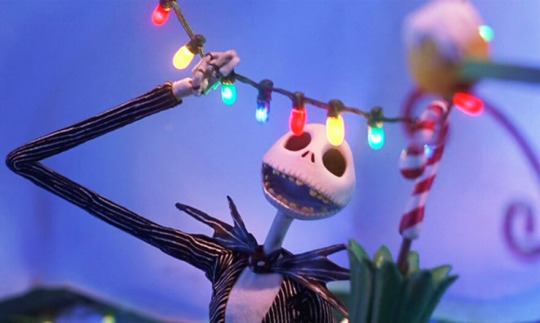
In the allegory, people are chained in a cave facing the wall watching shadows. It's all they've ever known. These are the monstrous citizens of Halloweentown who know naught but Halloween.
Then one of the cave people escapes to the world above and beholds reality. This is Jack Skellington discovering Christmastown.
The escapee returns to the cave to tell the people of reality but he lacks the language and the chained people cannot comprehend his meaning. This is Jack at the town hall.
So when Jack decides to subvert Christmas, the people of Halloweentown can do nothing but Halloween it up for it is all they know.
8 notes
·
View notes
Text

We are out of the cave... C312
Ali Çetin 2023
#earthlings#dünyalılar#shroomco#allegory of the cave#digital collage#collage art#collage artist#life#kolaj#creatures#absurd#digital art
8 notes
·
View notes
Text

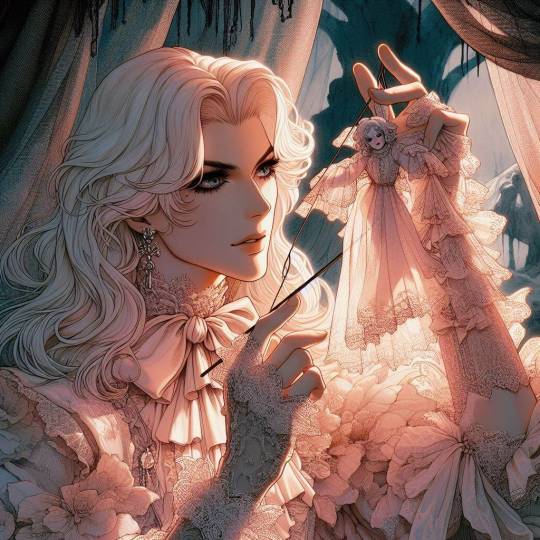
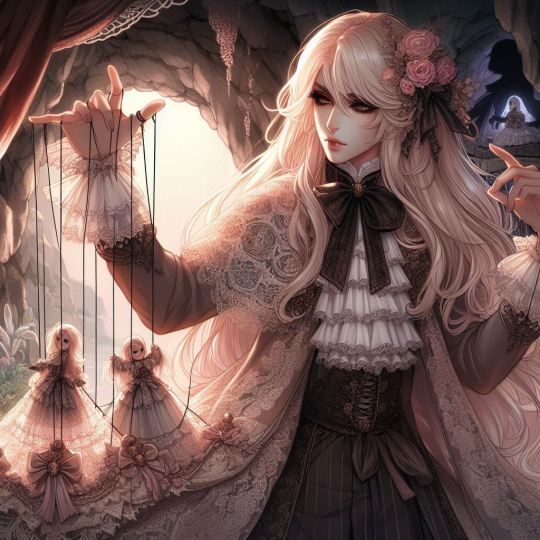

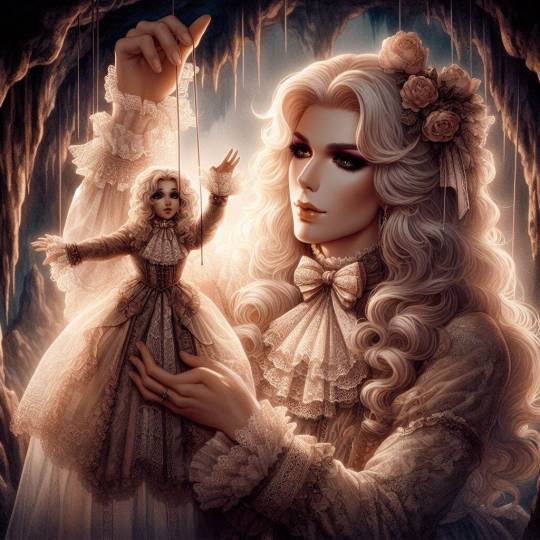

The Artist Is Inspired By His Son's Homework About Plato To Do A Shadow Puppet Show On A Cave Wall
3 notes
·
View notes
Text
why tf did Plato write the cave allegory thingy
everytime I read that thing, I want nothing more than to gouge my eyes out
5 notes
·
View notes
Text
hey sorry about your boyfriend. yeah he ventured back into the cave to tell the others about his newfound enlightenment but they didn’t believe him. yeah. yeah they thought the shadows on the cave wall not being real but instead projected images was a stupid idea so they beat him to death. sorry.
13 notes
·
View notes
Text
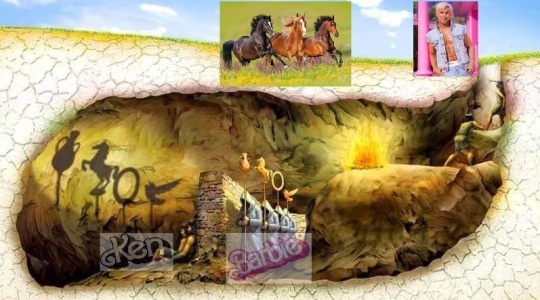
Barbie spoilers :3
7 notes
·
View notes
Text
"The Republic: Plato's Timeless Exploration of Justice, Politics, and the Philosopher's Quest"
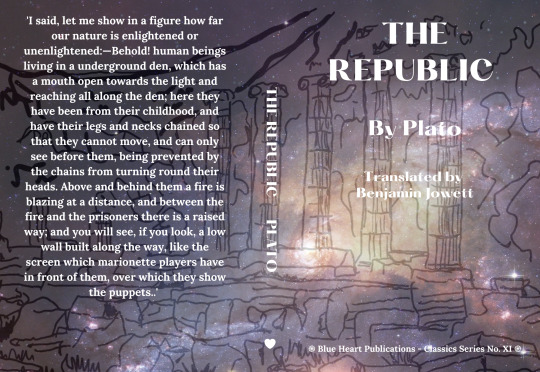
"The Republic," translated by Benjamin Jowett, stands as a timeless cornerstone in the philosophical canon, an intellectual odyssey that navigates the intricate landscapes of justice, politics, and the philosopher's pursuit of truth. Penned by Plato in the 4th century BCE, this Socratic dialogue remains a foundational work in political philosophy, ethics, and metaphysics. Jowett's translation, undertaken in the 19th century, preserves the essence of Plato's probing inquiries and dialectical brilliance, allowing readers to engage with the profound ideas that continue to shape the foundations of Western thought.
Plato's magnum opus unfolds as a series of dialogues, primarily led by Socrates, engaging with various interlocutors. The central exploration revolves around the question of justice, which becomes a metaphorical vessel for the examination of the ideal state, the role of individuals within society, and the nature of knowledge itself. The allegory of the cave, the tripartite division of the soul, and the philosopher-king are just a few facets of this multifaceted work that have reverberated through the corridors of academia for centuries.
The dialogue begins with an inquiry into the nature of justice as Socrates engages with characters like Thrasymachus, Glaucon, and Adeimantus. The discourse takes a dramatic turn as Plato introduces the allegory of the cave, an enduring metaphor for the journey from ignorance to enlightenment. This vivid imagery captures the transformative power of education and the philosopher's duty to ascend from the shadows of ignorance into the illuminating realm of true knowledge.
"The Republic" also ventures into the construction of an ideal state, led by philosopher-kings who possess both intellectual acumen and a commitment to the common good. Plato's vision challenges conventional notions of governance and explores the intricacies of a society governed by wisdom rather than mere political expediency. The dialogue delves into the organization of classes, the role of education, and the philosopher's ability to perceive the ultimate Form of the Good.
Benjamin Jowett's translation captures the nuances of Plato's intricate prose while maintaining accessibility for modern readers. His careful rendering of Socratic dialogues preserves the conversational tone and intellectual rigor that characterize the original work. Jowett's translation, though dated, remains widely used and respected, emphasizing the enduring appeal and significance of "The Republic" across generations.
"The Republic" is not merely an exploration of political theory; it is a profound meditation on the human condition. Plato's insights into the nature of knowledge, the complexities of justice, and the philosopher's role in society transcend the historical and cultural contexts in which they were conceived. The work prompts readers to question the foundations of their beliefs, to examine the societal structures they inhabit, and to consider the eternal pursuit of wisdom as a guiding principle.
In conclusion, "The Republic" by Plato, in Benjamin Jowett's translation, is a philosophical masterpiece that continues to shape the intellectual landscape. Its profound inquiries into justice, governance, and the nature of reality invite readers to embark on a philosophical journey that transcends time. The enduring relevance of Plato's ideas, coupled with Jowett's insightful translation, ensures that "The Republic" remains an indispensable text for anyone seeking a deeper understanding of the complexities of human existence and the perennial quest for a just society.
Plato's "The Republic" is available in Amazon in paperback 16.99$ and hardcover 24.99$ editions.
Number of pages: 471
Language: English
Rating: 10/10
Link of the book!
Review By: King's Cat
#Plato#The Republic#Socratic dialogue#Benjamin Jowett#Political philosophy#Ethics#Metaphysics#Ideal state#Justice#Knowledge#Allegory of the cave#Tripartite division of the soul#Philosopher-king#Thrasymachus#Glaucon#Adeimantus#Education#Allegory#Ideal society#Common good#Organization of classes#Form of the Good#Intellectual acumen#Political expediency#Conversational tone#Intellectual rigor#Human condition#Philosophical journey#Wisdom#Historical context
3 notes
·
View notes
Text
“When I found out the patriarchy wasn’t about horses, I just lost interest anyway.” Barbie the Movie
Kudos to Barbie helmer and co-screenwriter Greta Gerwig (Lady Bird, Little Women), Hollywood’s first woman director (and likely NOT the last) to earn $1 billion at the international box office for a film. In just two weeks no less.
I was reflecting on that milestone on the way home from seeing the fab film this morning. Why? What is it about this movie that has captured the zeitgeist so?…

View On WordPress
#Alexandra Shipp#allegory of the cave#america ferrera#Amy Heckerling#ann arbor#barbie#barbie movie#barbieland#betty friedan#billion dollars#box office#bumblebee#columbia city#detroit#don sexton#Emma Mackey#feminine mystique#feminism#film review#Franz Kafka#greta gerwig#helen mirren#humanism#indiana#Issa Rae#john cena#john mola#kate mckinnon#Kurt Vonnegut#lady bird
5 notes
·
View notes
Text
Person who has only seen shadows projected onto a cave wall: This reminds me so much of shadows projected onto a cave wall
22 notes
·
View notes